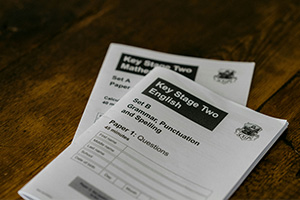Do You Put References on a Resume? A Guide by Resume Thrive
References on a resume are individuals who can confirm a job applicant's work experience, skills, and character. Job applicants often wonder whether they should include references on a resume. In the past, it was customary to either list the references on the resume or include the phrase "References available upon request." However, modern recruitment practices have shifted this responsibility to the employer, who may choose not to include professional references on a resume.
Learn How To Write A CV For a Job
In this article, we’ll explore whether you should put references on your resume when they might be appropriate, and how to manage your references effectively.
Should You Include References on Your Resume?
In most cases, you should not have a reference on your resume. Why's that?
- It Takes Up Valuable Space: A resume has to be concise and has to be focused on highlighting your skills, experience, and accomplishments. Reference will take up a pretty good amount of space that would have been better utilized in showing your qualifications for the job.
- They Are Not Expected by the Hiring Managers: Typically, employers request references later in the hiring process when they have short-listed applicants after conducting their interviews. Adding them to the resume too early is unnecessary and might even make a resume look old-fashioned.
- Privacy Concerns: Placing your references' contact details on an application or a resume that is most likely to be circulated at work will violate the privacy of your references. Wait until the employer asks you for your references so that they can also request the contact information.
When Should You Provide References?
While it’s unnecessary to include a reference list for resume, you should still be prepared to provide them when requested. Employers typically ask for references during the final stages of the hiring process, so it’s important to have them ready.
When References Might Be Appropriate
- In a Job Application: In some cases, the job postings will require that you attach a reference page for resume in addition to the resume. You either place them on a different sheet or add them to the application form.
- For Specific Industries: While in academics, government, and executive job profiles of upper ranks, a candidate may be asked to provide references before applying. In that case, adhere strictly to what is sought after in the application form.
- At the Employer's Request: If the employer wants references after a job interview, then that is a good sign in itself; he's most probably taking you pretty seriously for that position. However, at this level, recommendations are crucial, and hence, provide a list which has been pruned well.
How to Manage Your References
Even though references don’t belong on your resume, it’s crucial to have a list of reliable references ready when needed. Here’s how to manage them effectively:
1. Choose the Right People
Identify professional references who can speak to your work ethic, skills, and achievements. These could include:
- Former supervisors or managers
- Colleagues you’ve worked closely with
- Clients or vendors (for those in client-facing roles)
- Professors or academic advisors (for recent graduates)
Make sure that the people you choose can speak to your qualifications for the specific role you’re applying for.
2. Ask for Permission
Before listing someone as a reference, always ask for their permission. This not only shows professionalism but also gives your reference the chance to be prepared in case they are contacted by a potential employer.
3. Create a Separate Reference List
When the time comes to provide your references, create a separate document. This reference list should include:
- The reference’s full name
- Their job title and company
- Contact information (phone number and email address)
- A brief description of your relationship (e.g., "John Smith, my former manager at XYZ Company")
4. Keep Your References Informed
Once you’ve shared your reference list with an employer, notify your references. Let them know which company may contact them and provide details about the job you’re applying for. This helps them prepare to give the most relevant feedback about your qualifications.
How to Mention References Without Listing Them
If you still want to indicate that you have references available, it’s perfectly fine to include a simple note at the bottom of your resume:
"References available upon request."
However, even this isn’t necessary in most cases. Hiring managers will assume you can provide references when asked, so there’s no need to take up extra space on your resume with this phrase.
Conclusion
In today’s job market, there's no need to include references on your resume. Instead, focus more on just the kind of skills you have, experience, and qualifications. Prepare your list of references in advance and be prepared to provide it when requested. Let professionals at Resume Thrive create powerful resumes that impress employers and get you hired.










